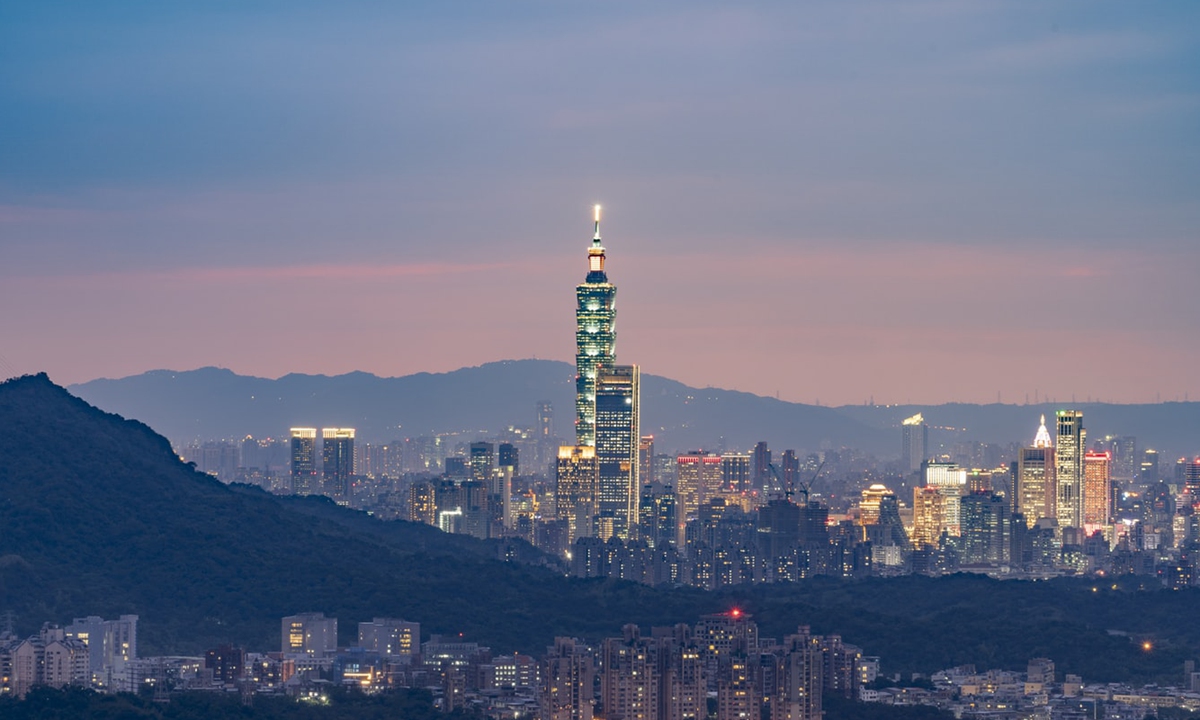DPP spreads ‘green terror’ by obstructing singers to mainland
By Zhang Han Source: Global Times Published: 2020/9/27 15:01:47
Taiwan compatriots who see big picture shouldn’t yield to intimidation: analysts

Taiwan Photo: Unsplash
The island of Taiwan's Mainland Affairs Council (MAC) on Saturday urged Taiwan-born entertainers not to attend a Chinese mainland gala being held for the upcoming National Day holidays, a move that was slammed by analysts as politicization of cultural activities and "spreading green terror" by any means possible to thwart normal exchanges.
Taiwan-born singer Angela Chang Shaohan is set to perform an anti-epidemic-themed song with other artists, while singer/actress Ouyang Nana will sing a song titled "My Motherland" with other performers, according to China Central Television, which is airing the gala on Wednesday.
Chang said in a backstage interview that amid the pandemic, she "felt and wanted to deliver love and courage to the audience through song."
Chang has been popular on the mainland since the early 2000s, and Ouyang has been very active in TV dramas and reality shows in the past few years.
But their participation in the gala has been obstructed by the Taiwan regional authorities, as the MAC claimed they are facilitating the Communist Party of China's reunification agenda and promoting a Taiwan version of "one country, two systems."
"Taiwan entertainers should consider 'national dignity,' social impact and related laws when attending activities in the mainland," the MAC said in a threatening tone.
Mainland netizens and analysts slammed the move, saying that the Tsai Ing-wen government is resorting to all possible measures, no matter how ridiculous, to politicize cultural affairs and thwart normal exchanges to foment mutual mistrust.
"I have been listening to Chang's music since primary school. Is Tsai going to announce it is illegal? Show me which article of the law she violated (to attend the gala)!" an internet user posted on Sina Weibo.
"I did not know Ouyang was born in Taiwan, but what's the point of stopping two women from singing in a mainland gala? Is that so important in your secessionist agenda?" said another.
"So the island's Democratic Progressive Party (DPP) authorities' democracy and freedom are only granted to pro-DPP people, not to the two singers who wanted to perform before their mainland compatriots," read another Weibo comment.
Wang Jianmin, a Taiwan affairs expert at the Chinese Academy of Social Sciences, told the Global Times that Tsai's authorities are spreading "green terror" to cut exchanges, which are the basis for mutual understanding and trust. Wang said legislation and political intimidation are the major tools.
Interpersonal exchanges are one of the remaining channels for cross-Straits communications, but the DPP is determined to hindering this channel by putting up economic and cultural barriers, analysts said.
"But Taiwan compatriots should not yield to such intimidation, as promoting cultural communication and carrying goodwill from each side of the Straits is a far-sighted choice in line with the irreversible historic trend," Wang said.
The more ridiculous and irrational the DPP appears, the more anxious and insecure it is about its secessionist path in the cross-Straits relationship, analysts said.
DPP authorities have heightened measures against the mainland recently. The economic departments introduced a rule last month banning mainland technology companies from carrying out operations in Taiwan without an official license. Also, the Taiwan agent for the mainland-based streaming platform iQIYI will have to cease services for Taiwan viewers on October 15.
The rule is also applicable to e-commerce platform Taobao, which is operated by an agent company in the island. Such obstruction of trade has frustrated small businesses and customers in the island.
Analysts noted that DPP authorities are becoming paranoid, politicizing everything to stir up confrontations with the mainland, prompting some indecent and ridiculous comments and moves.
A latest example is that Taiwan media hyping up a painting at a subway station in Taipei. The picture, inspired by a Northern Song-Dynasty (960-1127) painting, uses bears as avatars of people to depict prosperous market and city views. But DPP legislator Chen E-jun claimed the black bears, a symbol of Taiwan, are always serving other bears, like brown bears, polar bears and giant pandas, which is inappropriate and disrespectful of the island.
The painter said that people should not read too much into the work, which was finished in 2014, or connect it to politics.
RELATED ARTICLES:
Posted in: HK/MACAO/TAIWAN